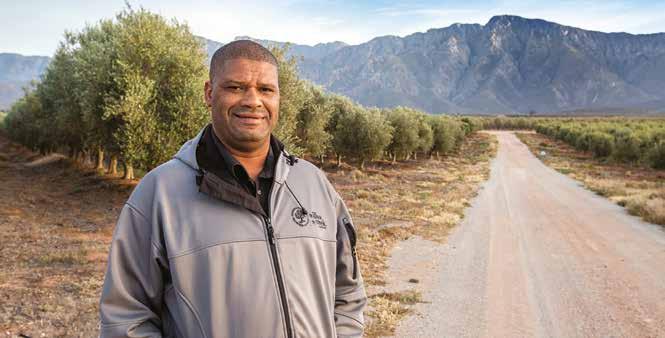
2 minute read
BFAP 2019 –FOCUSING ON AGRICULTURE’S FUTURE!
by WCDOA pubs
by Ayabonga Sibulali, Ayabonga.S@elsenburg.com and Tshepo Morokong, tshepom@elsenburg.com
TThe annual Bureau for Food and Agricultural Policy (BFAP) Baseline Launch has become an important event on the agricultural calendar in the Western Cape. As in previous years, BFAP’s Agricultural Outlook for 2019 to 2028 was published and the Baseline Launch was held recently at the Lord Charles Hotel in Somerset West. The Western Cape Department of Agriculture is a proud sponsor of this event and continues to partner with BFAP to provide projections for a period of ten years. These are based on agricultural production, consumption, price fluctuations, and trade performance of several agricultural value chains within South Africa. This is also done in collaboration with key local and international partners such as the Bureau of Economic Research (BER), the Organisation for Economic Cooperation and Development (OECD), the Food and Agricultural Organisation (FAO), and the Food and Policy Research Institute (FAPRI). This year’s BFAP Baseline touched on several issues like some of the latest trends and policy changes, and other relevant factors affecting world markets that impact the South African agricultural sector. BFAP information is critical for strategic planning and decision-making in the agricultural sector. The Baseline therefore serves as the benchmark to test and interpret external shocks to South Africa’s agricultural sector, and offers some recommendations on how to proactively choose and work towards the desired pathway for growth and jobs in the economy. Some of the major findings from the report are summarised below.
Presently, agriculture is under pressure because of the increased use of natural resources (i.e. water shortage), squeezed profit margins and uncertainty regarding government policies. Apart from low international commodity prices and pressure on the disposable income of consumers, South African sectorial performance has also recently been hit by avian influenza, listeria and severe drought, among others.

The stagnant gross value of the agricultural production of 2019 is not expected to change significantly from the levels of 2015, because of these contributing factors. Globally, the USA–China trade war and the outbreak of African Swine Fever
(ASF) in China are affecting world trade patterns. Back home, some South African agricultural industries have performed well, where growth in agricultural exports over the past ten years was driven by some of the horticultural sub-sectors. Sustained growth in the fruit industries over the past decade can be regarded as one of many success stories and reflects a certain level of competitiveness. There is also an urgent need to expand market access for products in the fruit industry, especially for soft fruits, citrus, and berries.
On the consumer side, the cost of a staple food basket is projected to increase by 6%, mainly driven by maize meal inflation, which is expected to increase by 11% as farm gate prices move towards a 20% increase. Since 2015, agricultural employment has also been under pressure with job losses occurring as a result of the drought. However, some smaller intensive alternative crops have managed to expand production and have therefore created jobs. Employment remains a critical element of the agricultural sector, stated in the National Development Plan as a “one million employment target”. Therefore, the creation of jobs within the agro-food or value chain will play a major role in achieving this target.

Prof. Ferdi Meyer (managing director of BFAP) highlighted key issues to put the agricultural sector on a pathway of growth. These, among others, include policy certainty that promotes a conducive environment for foreign investment; accelerated but stable land reform and effective farmer support; efficient natural resource management; and continuous improvement of international market access, particularly the export of value-added agricultural products. The Baseline Report is available online (bfap.co.za) and this analysis of the South African agricultural sector continues to promote enhanced decision-making to farmers, policymakers and agribusinesses. bfap.co.za/wp-content/uploads/2019/08/ Final-Baseline-2019.pdf












